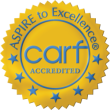Addiction puts a significant strain on any relationship. No matter how much you love and trust someone, challenges like secrecy, manipulation, dishonesty, denial and resentment can begin to take their toll on your well-being as their illness worsens.
You may feel a sense of relief when your loved one agrees to enter a substance abuse treatment program, but it does not mean they will come out of rehab cured of all their issues. They’ll still have lots of work ahead to address the harm done during their active addiction, and you will need to prepare to deal with the damage to your relationship.
Addiction Is a Family Disease
The entire family dynamic can suffer when one member develops a drinking or drug problem. Guilt, anger, chronic stress, isolation and shame can cause new health issues or exacerbate existing ones. Your family may also struggle with ongoing financial or legal difficulties stemming from addiction if your loved one is too sick to keep a steady job or has resorted to illegal or unethical methods to get more drugs or alcohol.
Attempting to cope with the myriad challenges associated with addiction and recovery can also cause unhealthy relationship patterns, such as the following.
- Unhelpful criticism: If you nag your recovering loved one or complain about their behavior without providing constructive suggestions for how they can improve, you could be provoking arguments or communications breakdowns.
- Enabling: Assuming responsibility or making excuses for your loved one’s actions will only slow their progress in recovery.
- A lack of clear-cut boundaries: Few or no boundaries can blur the lines between appropriate and unacceptable behavior.
- Unrealistic expectations: Your loved one will have ups and downs in their sobriety journey that could cause you to feel frustrated and disappointed.
- Misdirected anger: You might vent your feelings about your loved one’s illness toward others.
- Self-medication: You may eventually turn to substance abuse as an outlet for dealing with the stress associated with your family member’s addiction and recovery.
- Sweeping problems under the rug: Attempting to keep the peace by ignoring red flags of a problem or acting as if nothing is wrong is a form of co-dependency that will likely backfire someday.
How Can You Start Rebuilding Your Relationship?
Addiction can threaten your ability to maintain a long-term relationship by opening a rift between you and your loved one that you can’t heal on your own. Even if your family member enrolls in a treatment program, that is only the first step to helping them regain their mental, physical and spiritual health. You also have a critical role to play in their recovery process.
First, acknowledge that rehab is not a magic bullet. Even when your loved one is clean and sober, there may still be tension lingering in your relationship from the days of active addiction. If you don’t address these issues, conflict can return, potentially sparking a relapse. You can play your part in helping your family member stay on track with their recovery goals by participating in family therapy and programs like Al-Anon.
At Rising Roads Recovery, we understand how heartbreaking it can be to watch someone you love get caught in the cycle of addiction. We provide programming designed to support women’s needs in pursuing sobriety and a healthy lifestyle. Contact us today to learn more.





